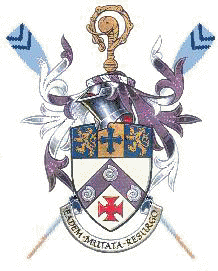


Kindly sponsored by:
![]()
Training Advice
Some advice for rowers….. from a Victorian perspective.
The day's Routine
"Turn out of bed at 6:30, certainly not later than 7 o'clock. No cup of tea before getting up, nor immediately after rising, as this is most detrimental."
"All the members of the crew, except the coxswain should retire to bed at 10pm and be fast asleep by 10:30pm. I would lay great stress on the importance of sleeping in well ventilated rooms; windows may be kept widely open without any fear that the men will take cold even in winter… it should be a rule that all bedroom windows are to be widely open at night.”
On training
"rowing stands alone, in that the exercise in the boat, in addition to walking, is all that is required to get the oarsman fit. No ball-punching exercises or dumb-bells should be practiced during actual training. Walking and the boat will do all that is required."
"A rowing man should not confine his preparation entirely to the strict training period, he should keep fairly fit through the winter if he desires to be at his best in the spring and summer. To this end he should row leisurely once or twice a week if convenient and practice ball-punching, skipping and Indian clubs. Indian club swinging is possibly the best of exercises for oarsmen during the winter
months"
On the coach
“...his corrections should be short and precise and limited in the case of each man to one fault at a time. Nor should he disdain to encourage as well as to correct. Nothing wears an oarsman’s spirits out more than a constant torrent of rebuke unmingled with any hint at improvement. Equally important is not to nag at one man for a long period. Let him be told of his fault, instructed how to correct it, and then let him be alone for a little.”
On coxswains
“It is generally supposed (by coxswains themselves) that their title implies a kind of chieftainship. This, however, is an error, and I am bound to correct it. I gather from my dictionary that coxswain is derived from cock, a boat, and swain, a young man or boy in service, and the word, therefore, means a boat-boy, with an implication not of chieftainship but of servitude”
On crew selection
"good heavyweight oarsmen are generally hard to find, for big, strong men as a general rule are not the best watermen, and do not pull with strength proportionate to their weight. The best weight for a stroke is 11 to 12 stone, over 12 stone a man is apt to be too slow, and few big men are stylish
oarsmen"
“No 7 is the key stone of the arch; he keeps the whole fabric of the crew together, locks into one consistent whole the stones that without him would fall apart and bring everything to ruin. If supremacy in importance is to be allotted it must go to no 7.”
On Discipline
While the crew is rowing, no voice should be heard except that of the coach, who instructs, and that of the coxswain, who corrects the time. It follows from this that you are not permitted to “answer back” to a coach. To murmur curses under your breath while the coach is instructing you is equally impermissible and anarchic”
On staleness
In the treatment of staleness champagne is of great value; indeed, when a man begins to show the signs of overwork a bottle of champagne for dinner in place of his ordinary liquor will often suffice to pull him round. As a rule it is not wise to give champagne except under these circumstances, or to allow it on more than two evenings during the training, but should any man remain below par for several days without sign of improvement he may be given champagne diluted with mineral water as his regular beverage for lunch and dinner.
Staleness at the end of training, say two or three days before the race, is much more serious, but can be cured in a well trained crew by a trip for a couple of days or a weekend to the seaside, with, of course, no rowing during this rest.
On drinking
“With most Leander crews, which are composed of experienced oarsmen, it has been found possible to abolish restrictions on the amount of liquor, and to allow the men to take what they want to satisfy their thirst, which at Henley time is naturally more severe than in the early spring at Putney. With a crew of younger and less experienced oars, such liberty of action is not to be recommended”
"Three half-pints of ale a day are, I think, the best and sufficient drink for a man in training. The Varsity crews include a glass of port after dinner, but I think this is a mistake. If any man or crew seems low or stale I advise soup and an extra half-pint of old ale for a day or two, or a glass of champagne on three days in a week"
On food
"The food at meals should be just whatever one fancies so long as it is plain and wholesome. Pork, rabbit, hare, venison and boiled beef are not allowed. Potatoes must be sparing partaken of. Bacon, shell fish, suet puddings, pastry and cheese complete, I think, the list of banned foods."
Rowing terms
"SUGARING - Rowing apparently correctly, but avoiding putting in a full share of work."
On Boils
"If there is any weakness or impurity in the blood a hard course of rowing will generally bring it out in the form of boils"
Rules of racing (1904)
"15. every competitor must wear complete clothing from the shoulders to the knees, including a sleeved jersey (rule 15 is to prevent the use of the objectionable sleeveless jerseys, exposing the naked flanks and armpits, which have been introduced into amateur regattas by oarsmen of questionable status)"
Kindly sponsored by:
![]()